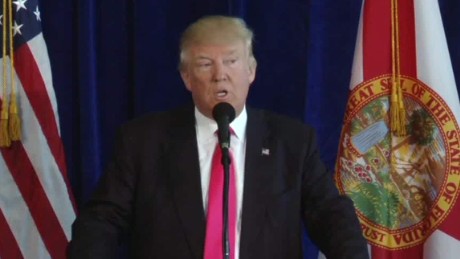The new warfare facing America’s next president

(CNN)There is so much at stake in the election this year — immigration, jobs, health care and the future of the Supreme Court. But there is another, immediate concern. When you cast your vote Tuesday, consider that the next president may well be the first to face a new kind of warfare when he or she takes office: cyberwar.
Pernicious, pervasive and yet potentially undetectable, cyberwar will take the shape of the theft of vast amounts of intellectual property, causing great damage to America’s economic vitality in the process. It will include denial of service attacks masked as internet outages, power shortages and other disruptions to society. And it will take the form of covert information operations that seek to tear at the roots of our democracy.
This is warfare in the information age. If you can shut down the electric grid in Ukraine, or destroy centrifuges in Iran, or sabotage an election by manipulating data — data that runs the grid, the centrifuges, or the way we vote — you have a new attack vector: information bombs.
Make no mistake, Russia’s likely attack on our election is a warning shot; it is a clear message for our next president that securing cyberspace must be a preeminent focus from day one. The next president will be the first president of the digital age, and will need to lead the nation through one of the most dramatic transformations in human history, disrupting all aspects of how we live and work, at the speed of light.
As such, we will need a cyberpolicy, legislative, economic and security agenda that pervades every element of the president’s activities over the next four years. The president’s advisers, staff, and Cabinet must be single-minded about this shift.
We must come to grips with a new murky and uncertain world where bright familiar lines between espionage and aggression, and between black and white notions of war and peace, don’t exist. We must understand that as we move ever more deliberately into ubiquitous connectivity, we move equally from splendid isolation to uncertain integration, and vulnerability, as well.
With that in mind, we will have to ensure that the fundamental nature of our humanity and the fabric of our society is not torn apart by the distillation and subjugation of human activity through pervasive, remote, anonymous and autonomous connectivity, and potentially surveillance, too.
There is much that must be done. For a start, we must ensure that the global community establishes normative behavior for how we govern ourselves in cyberspace. In addition, we must put in place clear legal and judicial frameworks to prevent and minimize hacking, cybercriminal safe havens, cyberviolence and the current ambiguity in rules of the road that may unwittingly lead to state conflict.
And we must also build our digital and physical infrastructure with the requisite security and resilience baked in at all levels of cyberspace — chip, device, network, and cloud — to protect against emerging threats, while developing a new model for deterrence that not only thwarts Russian and other state cyberaggression, but other malicious actors as well.
There are also institutions so vital to the functioning of our democracy that as they go digital we must protect them akin to how we protect critical physical infrastructure. Our election system is one such example.
We will be electing a president who will begin his or her term in the midst of a new form of conflict and an emerging digital world that will define the next generation. The one thing we can and must each do in support of the next president — and in defense of our nation under attack today — is to vote. Don’t let Russia or anyone take away that right, or your voice in our democracy.
Vote. And in the actions of each of us, we begin to help shape and secure the nation for all of us.
Read more: http://www.cnn.com/2016/11/07/opinions/cyberwar-already-here-heyman/index.html



